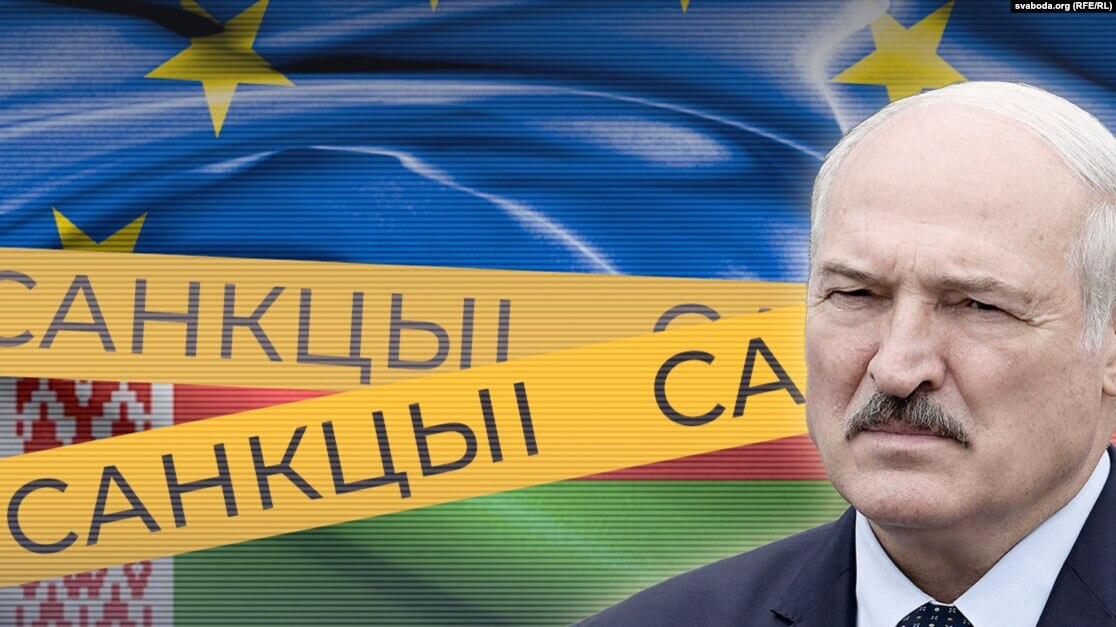The Belarusian regime escalates as the West prepares the seventh package of sanctions
 The situation got worse
The situation got worse

Western countries are preparing to introduce the seventh package of sanctions against Belarus and Russia. Although it is less stringent than expected (in particular, it does not contain an embargo on Russian gas), the Belarusian regime responded with another round of escalation, targeting Western business in Belarus and designating Poland as the main enemy. The democratic opposition in exile capitalised on this, enlisting the support of Warsaw.
The European Union is seeking to agree on a seventh package of sanctions against Russia and Belarus by the end of July, which will close some loopholes and impose an embargo on gold imports.
The UK has expanded economic sanctions against the Lukashenka regime as the government “continues to promote Putin’s illegal invasion of Ukraine. The sanctions package includes a ban on the export of oil refining goods, export of high-tech goods, export of luxury goods, including British works of art and designer bags, and imports of Belarusian iron and steel. The British government also restricted Belarus’ access to the British financial services sector.
In addition, the sanctions have been expanded against Belarusian potassium, and a ban on importing weapons has been introduced. Commodity code 31042050 appeared on the sanctions list, denoting potassium chloride with a potassium content in terms of potassium oxide of more than 40% but not more than 62% in anhydrous product, which is the main potash fertiliser. Previous sanctions exempted imports under this code. Code 31059020 was also added for mixed mineral fertilisers (mineral fertilisers, other, with a nitrogen content of more than 10 wt. % in dry anhydrous product). Item 2707 (oils and other products of the high-temperature distillation of coal tar; similar products in which the mass of aromatic components exceeds the non-aromatic) has been added to the list of mineral product codes. Previously, these products were re-exported through Latvia and Estonia under a grey scheme, which the Estonian government eventually blocked.
Citigroup and Citibank refused to work with Belarusian Eurobonds, which may soon default.
At the 50th session of the UN Human Rights Council, another resolution on Belarus was adopted, condemning the state of affairs in the country. The mandate of the Special Rapporteur on the situation of human rights in Belarus, Anais Marin, was also extended for a year.
In response to a new wave of pressure from the West, the Belarusian regime escalated on the economic, diplomatic, and rhetorical fronts.
First, Belarusian authorities imposed sanctions on foreign investors, identifying companies with foreign capital whose owners are forbidden to sell their businesses. The list includes firms that belong to persons from foreign countries “committing unfriendly acts against Belarusian legal entities and (or) individuals.” Shares of these companies are blocked in the deposit accounts of their owners based on the order of the Ministry of Finance on the imposition of restrictions on the disposal of securities. In total, 190 enterprises with foreign capital, mainly from Western countries, fell under these restrictions.
To criticise the state of human rights in the country, the criticising “high-profile cases” and “actions of Western states against mass actions and citizens whose point of view does not coincide with the position of the authorities.”
Another target was Poland. On July 4th, it became known that the graves of Home Army soldiers in Mikuliški in the Hrodna region were razed to the ground “on the recommendation of the Belarusian authorities.” Poland regards the desecration of the graves of Polish soldiers as a deterioration in relations with Belarus. In addition, the head of Belarusian military intelligence (GRU), Ruslan Kosygin, threatens to launch missile strikes on targets in Poland in the event of a military conflict between European countries and Russia and “if they try to talk to us from a position of strength.”
Against this background, Belarusian democratic leader Sviatlana Tsikhanouskaya during her visit to Poland, met with President Andrzej Duda and Prime Minister Mateusz Morawiecki to discuss the support of Belarusians and assistance to Ukraine. Moreover, during her visit, the Congress of Belarusians, a new joint initiative between her office with the National Anti-Crisis Management of Pavel Latushka, was announced. Politicians believe that the following issues should be brought to congress:
- the foundation of the national liberation movement of Belarus,
- the creation of a national body as an executive and coordinating structure to ensure the transit of power in Belarus and the activities of the national liberation movement,
- the principles of strategic cooperation and support for Ukraine,
- a European choice for the Belarusian people.
Further, speaking at the Council of Europe, Tsikhanouskaya called for creating a committee for relations with Belarus and noted several areas where cooperation with the Council of Europe should develop. This is in preparation for reforms, the transition period, and the development and implementation of programs to support human rights defenders, lawyers, the media, women, youth, and cultural figures.
Thus, a new round of escalation from the Belarusian side will only accelerate new sanctions. Poland, in turn, will more actively claim to be a centre for the Belarusian opposition in exile and a driver of even tougher restrictions against the Belarusian regime with the prospect of Belarus joining the anti-Putin coalition.
Subscribe to our newsletter




Situation in Belarus
Constitutional referendum: main consequences


 Video
Video
How to count the political prisoners: are the new criteria needed?


 Video
Video
Paternalism In Decline, Belarusian Euroscepticism, And The Influence Of Russia


 Video
Video












